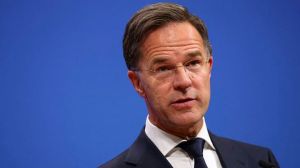‘ICC is run by people who have no role in their countries’
Lalit Modi was Sharad Pawar’s main strategist in the famous Kolkata coup. The chief revolutionary is now plotting another kind of revol...

Lalit Modi was Sharad Pawar’s main strategist in the famous Kolkata coup. The chief revolutionary is now plotting another kind of revolution; as BCCI vice-president, he is overseeing the marketing of the game in India — and how the game shapes up abroad as well. So far it’s been a dramatic few weeks with Modi in the thick of things but he took time off to talk to SANDEEP DWIVEDI on playing hardball with the ICC, signing mega television deals and searching for skeletons in Dalmiya’s closet
Why has the BCCI suddenly taken an aggressive stance against the ICC?
It’s only now that we have come to know about certain things. Earlier most members of the BCCI were in the dark about what happened in the ICC. In the previous regime there was just one man who did all the interaction. Now we have documents and contracts with us, we’ve realised that we’ve been shortchanged. For a country that provides the ICC about 85 per cent of its revenue, India is getting a raw deal. Forget special status, we aren’t on par with other boards. What we are doing right now might be seen as confrontational but all we are asking is for a fair deal.
What exactly is this raw deal and what, according to you, is a fair deal?
This is not just one issue but a bunch of them. Look at the cricket calendar and you’ll see how our interests are sidelined. While Australia plays about 110 days of cricket at home in the calendar cycle, India gets not even half of that. A home series is where a board can generate revenue and so limited opportunities means our interests suffer. Besides, the international ICC calendar was worked out in such a way so that domestic cricket in Australia and England were not disturbed — no such perks for India.
Then comes the Champions Trophy schedule issue. Since it’s an ICC event and happens to clash with our home series, hosting it makes no financial sense. These were the some issues that surprisingly no one has pointed out till now.
It’s not just the Champions Trophy, the BCCI has also objected to the way the ICC deals with its finances for the World Cup.
Okay, listen to this and judge for yourself if the ICC is right or wrong. West Indies gets $110 million for hosting the World Cup with the logic that it’s to improve the infrastructure. If the big event comes to India, we get just $10 million. The main problem is the fact that the ICC is run by people who have no role in the boards of their respective countries. This means that the interests of members are never top of the agenda.
Who are you referring to?
The ICC president Ehsan Mani isn’t in the PCB, chief executive Malcolm Speed isn’t there in the Australian board, Jagmohan Dalmiya, who is part of the important IDI committee, has no role in the BCCI. All these members are not really connected to the respective boards. And because of this the ICC takes some unilateral decisions that aren’t really in the members’ interest. Why, for example, was just the final of the junior World Cup telecast despite the presence of contracts and commitments?
And there is something more serious that has happened without many people knowing about it. The IDI committee of the ICC, which happens to have Dalmiya on it, has gifted 12 World Cup matches free to its marketing partner the Global Cricket Corporation. I have asked several other boards in other countries and they too have no idea about this transaction. If one considers the market value of 12 World Cup games it comes to around $100 million.
Jagmohan Dalmiya’s name seems to be regularly thrown up by the present BCCI body when it comes to financial irregularities. Dalmiya has called this a witch-hunt.
He would, wouldn’t he? The fact remains that, as we take control of things, we are gradually finding out that the accounts don’t match. Since he was the man in charge all this time, he’ll be asked questions. We came to power with the promise of transparency and accountability and that’s what we are trying to do.
The TV deals have seen the BCCI’s revenue increase manifold. Will this trickle down to the grassroots? Or will it be a case of the rich getting richer…
There’s no debate, it’s a very simple formula that we follow. From the money that we receive, 26 per cent goes to the players and 85 per cent of the rest has to be spent on the development of the game. A Ranji player is expected to get about Rs 1 to 1.25 lakh per game. There will be increase in the prize money, the facilities will improve… Even schools and colleges will be given funds to develop infrastructure. State associations will be assisted in getting equipment for maintaining grounds and pitches. The present network of academies will be more extensive.
Where does the cricket fan fit in all this, how will things change for him?
The one area that we think needs urgent attention is the comfort for fans at the stadiums. They are ones who sustain the game and are the backbone of our revenue. We want to make watching cricket a comfortable experience. We’ll also be exploiting avenues for marketing and merchandising the sport. Corporate hospitality, clothing and cricketing memorabilia will easily available for the fans. In days to come being a cricket fan would mean a much more comfortable and satisfying experience.





- 01
- 02
- 03
- 04
- 05


























